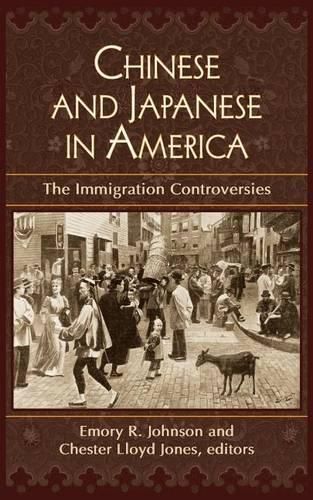Readings Newsletter
Become a Readings Member to make your shopping experience even easier.
Sign in or sign up for free!
You’re not far away from qualifying for FREE standard shipping within Australia
You’ve qualified for FREE standard shipping within Australia
The cart is loading…






Despite appreciation by scholars for Chinese and Japanese culture, cries against Chinese and Japanese immigration to the United States was a strong force. It began in response to the development of the transcontinental railroad that saw the arrival of Chinese immigrants exploited as cheap labor. Japanese immigration to the US began in the mid-1850s after major urbanization, growth and the reduction of isolationist polices in Japan. Soon after, the first restrictive immigration Act passed on May 6, 1882 in the US, and was the start of a series of increasingly more restrictive laws, such as the Act to Prohibit the Coming of Chinese Persons into the United States, known more popularly as the Geary Act of May 1892. It wasn’t until the Immigration Act of October 1965 when the exclusionary practices were lifted, despite President Truman’s signing of the Act to Repeal the Chinese Exclusion Acts, to Establish Quotas and for Other Purposes in December of 1943, specifically done to prevent Japanese immigration during Internment of Japanese and Japanese-Americans during World War II.
$9.00 standard shipping within Australia
FREE standard shipping within Australia for orders over $100.00
Express & International shipping calculated at checkout
Stock availability can be subject to change without notice. We recommend calling the shop or contacting our online team to check availability of low stock items. Please see our Shopping Online page for more details.
Despite appreciation by scholars for Chinese and Japanese culture, cries against Chinese and Japanese immigration to the United States was a strong force. It began in response to the development of the transcontinental railroad that saw the arrival of Chinese immigrants exploited as cheap labor. Japanese immigration to the US began in the mid-1850s after major urbanization, growth and the reduction of isolationist polices in Japan. Soon after, the first restrictive immigration Act passed on May 6, 1882 in the US, and was the start of a series of increasingly more restrictive laws, such as the Act to Prohibit the Coming of Chinese Persons into the United States, known more popularly as the Geary Act of May 1892. It wasn’t until the Immigration Act of October 1965 when the exclusionary practices were lifted, despite President Truman’s signing of the Act to Repeal the Chinese Exclusion Acts, to Establish Quotas and for Other Purposes in December of 1943, specifically done to prevent Japanese immigration during Internment of Japanese and Japanese-Americans during World War II.